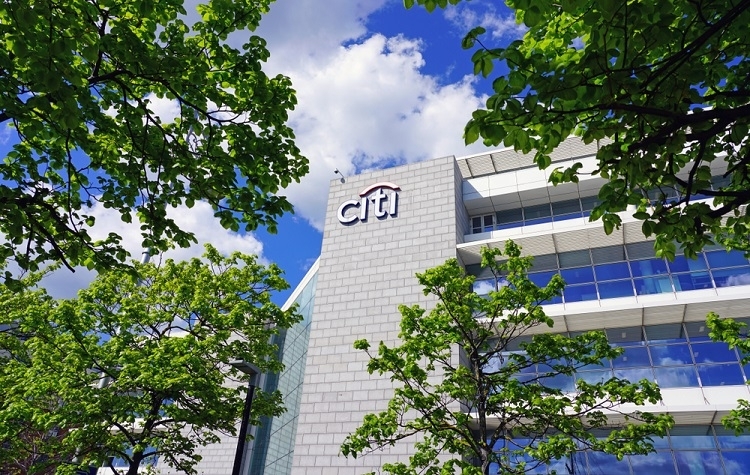Greener finance incentives picked up by local banks
 |
Last week, the International Finance Corporation (IFC) under the World Bank Group announced a partnership with herbs and spices group McCormick & Company and US financial behemoth Citi to provide suppliers of McCormick’s products with financial incentives linked to improvements in measures of social and environmental sustainability in Vietnam and Indonesia.
The programme will soon be launched in other countries and, under the initiative, suppliers can qualify for discounted rates on short-term working capital financing when they meet sustainability standards accepted by McCormick.
The collaboration between McCormick and the IFC leverages Citi’s global Supplier Finance offering, which strictly follows environmental, social, and governance credentials so they may benefit from liquidity at preferential rates based on their sustainability performance.
“Bringing this sustainable financing solution to life is a huge milestone for us. Citi is committed to helping clients achieve their sustainability objectives, especially with respect to supply chains and environmental challenges,” said Adoniro Cestari, global head of Trade Product Management and Structuring with Citi’s Treasury and Trade Solutions. “We are working with clients around the world to help them balance environmental and economic needs, adhere to defined standards, and manage risks in their supply chains. Helping to support the sustainability of the supply chains and stimulating international trade flows are critical priorities for us.”
Citi’s involvement by leveraging its international expertise and high-quality banking standard through Citi’s Supplier Financing infrastructure is part of its ongoing efforts to promote sustainability and responsible financing in Vietnam.
In early July, the IFC also invested VND1 trillion ($43.47 million) through a 7-year bond initiative in GREENFEED – a Vietnamese feed-farm-food integrated clean food chain.
“Satisfying the strict measurements of the IFC, we will utilise this fund for our Vietnam-focused business operation. This package will help GREENFEED to scale up our pig farming capacity, providing traceable and safe pork to meet the rising demand for animal-based food in Vietnam. We believe this will cement our market position and enhance our solid growth fundamental,” a representative from GREENFEED told VIR.
Besides international financial institutions, some other local lenders such as BAC A BANK and BIDV are also enhancing their banking capacities for sustainability-driven or rural-focused projects.
Southern-based lender OCB is one of the first banks in Vietnam to integrate environmental and social risks assessment into its credit-granting procedure.
Last month, OCB also bagged a $100 million long-term loan from the IFC to expand lending to small- and medium-sized enterprises and boost financing, especially for climate-friendly projects in Vietnam.
“While we have been implementing green finance since 2015, our priority areas include high-tech agriculture, renewable energy, and climate-friendly projects, among others,” said Nguyen Dinh Tung, OCB general director.
While the State Bank of Vietnam (SBV) has been promoting green banking over the past few years, the climate-finance market is still in its infancy and banks are now considering a systematic approach toward climate finance.
“The IFC sees banks as a major force in fighting climate change in emerging markets such as Vietnam since they can strategically expand financing for climate-smart initiatives,” said Kyle Kelhofer, IFC country manager for Vietnam, Cambodia, and Laos.
Pham Nhu Anh, member of the Board of Management and head of Corporate and Investment Banking at MB told VIR, “MB will be more proactive and aggressive in researching in-depth the green sector in order to successfully sponsor green credit projects, offering great benefits to customers, society, and the bank. Aside from that, MB will also establish synchronous and advanced risk assessment and risk management systems, as well as update changes to promptly come up with solutions and effectively handle the situation.”
“Considering the green sector as one of the inevitable trends that bring significant benefits to society, MB hopes to receive guidance from regulators and the SBV as well as the cooperation of credit institutions and the support of customers so as to better fulfill our role in providing green credit,” Anh added.
What the stars mean:
★ Poor ★ ★ Promising ★★★ Good ★★★★ Very good ★★★★★ Exceptional
 Tag:
Tag:
Related Contents
Latest News
More News
- Banking sector targets double-digit growth (February 23, 2026 | 09:00)
- Private capital funds as cornerstone of IFC plans (February 20, 2026 | 14:38)
- Priorities for building credibility and momentum within Vietnamese IFCs (February 20, 2026 | 14:29)
- How Hong Kong can bridge critical financial centre gaps (February 20, 2026 | 14:22)
- All global experiences useful for Vietnam’s international financial hub (February 20, 2026 | 14:16)
- Raised ties reaffirm strategic trust (February 20, 2026 | 14:06)
- Sustained growth can translate into income gains (February 19, 2026 | 18:55)
- The vision to maintain a stable monetary policy (February 19, 2026 | 08:50)
- Banking sector faces data governance hurdles in AI transition (February 19, 2026 | 08:00)
- AI leading to shift in banking roles (February 18, 2026 | 19:54)






















 Mobile Version
Mobile Version